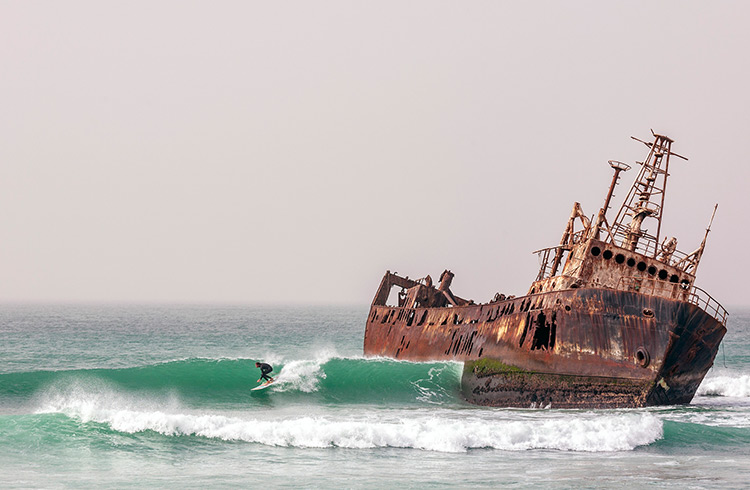Is Travel to Mauritania Safe? 5 Important Things to Know
The Northwest African country of Mauritania struggles with poverty, terrorism, slavery, escalating crime and heavily mined border areas. Here's what you need to know.
 Photo © Getty Images/John Seaton Callahan
Photo © Getty Images/John Seaton Callahan
While the natural beauty of its people, deserts and coastline are undeniable, unfortunately safety in the region is constantly in question.
1. Terrorism
Terrorists have been known to target areas frequented by foreigners, government buildings and any area that attracts locals and foreigners alike, including: clubs, restaurants, embassies, international schools, hotels, expatriate housing compounds, churches and other places of worship, shopping centres, outdoor recreation events, tourist areas and transport hubs or identifiably western interests, including businesses.
The risk of kidnapping is also very high in Mauritania, particularly against Westerners in Nouakchott and Atar. There are regular reports of terrorists planning to kidnap Western tourists, mine workers, oil workers and aid workers in Mauritania.
The threat to Westerners of kidnapping remains very high. To avoid becoming a victim of kidnapping, avoid open terraces and cafes and change your daily routines and travel schedules.
The border areas with Mali, Algeria and Western Sahara are not safe. The risk from bandits, smugglers and extremist groups is particularly high in these areas. In particular, there have been reports that AQIM, the terrorist group responsible for the kidnapping of foreign hostages in North Africa, is active throughout this region and poses a significant security threat.
It is also not safe to travel to the eastern and northern provinces of Mauritania – Tiris Zemmour, Adrar, Tagant, and Hodh el Chargui – due to the continuing high threat from terrorism throughout the country.
2. Crime
Poverty and terrorist activities have lead to increasing crime levels in Mauritania. Violent crime including robbery, rape and assault are on the increase. Also, armed bandits are a major risk across Mauritania. Bandits pose a threat in beach areas, deserted areas and along the road between Mali and Mauritania. When traveling by car, you should keep the doors locked, the windows up and keep valuables out of sight.
3. Getting around: transport in Mauritiania
Many of Mauritania's border areas are not safe due to unexploded landmines, particularly in the area bordering the Western Sahara region. Keep in mind that landmines have been known to shift in sandstorms. Do not stray from well-traveled roads.
Landmines are not the only threat to drivers in Mauritania, very poor road conditions, lack of vehicle maintenance and poor local driving standards means that accidents are common. Driving at night is particularly hazardous due to the risk of shifting sand dunes and accidents with other vehicles and animals.
The risk of kidnapping and terrorist attacks makes taxis and public transportation very unsafe for Westerners.
4. Local laws in Mauritiania
Mauritania is a conservative Islamic country, as such visitors should dress and behave accordingly, particularly during the holy month of Ramadan. It is wise to avoid physical contact between men and women in public as public displays of affection can cause offence, particularly in rural and traditional areas and near mosques, religious shrines and religious educational institutions. Homosexuality remains a punishable offence in Mauritania and drug laws are severe. Those found in the possession of any illegal drug may receive a prison sentence. Mauritania is a dry country. The sale and consumption of alcohol is against the law, although some restaurants do serve it. It is wise to carry your ID at all times, particularly when traveling outside Nouakchott. You should also comply promptly with directions from the police and other Mauritanian security forces.
5. Health
Malaria occurs throughout the year in Mauritania. Chloroquine-resistant strains of malaria are reported. Other insect-borne diseases (including dengue fever, yellow fever, filariasis and leishmaniasis) also occur. You should take measures to avoid insect bites, including using an insect repellent at all times.
Water-borne, food-borne and other infectious diseases (including cholera, hepatitis, measles and tuberculosis) are prevalent, while other diseases (including meningitis, polio, Rift Valley fever and typhoid) are known to occur with outbreaks occurring from time to time.
Boil all drinking water(for at least three mintues) or drink bottled water, and avoid ice cubes and raw and undercooked food. Do not swim in fresh water to avoid exposure to certain water borne diseases such as bilharzia (schistosomiasis).
The temperature in Mauritania is often extremely high. You may become dehydrated quite easily, and not be aware of it. Try to drink water regularly throughout the day, in the hottest months this may mean several litres of water.
You should consider the following vaccinations before traveling here:
- Hepatitis A and B
- Typhoid
- Meningococcus
- Malaria
- Revaccination / booster shots for Measles, Mumps and Rubella and Tetanus-Diptheria
It seems unlikely that Mauritania will be a tourist destination anytime soon, it is not a very safe country and many governments advise against travel to the country for good reason.
Simple and flexible travel insurance
You can buy at home or while traveling, and claim online from anywhere in the world. With 150+ adventure activities covered and 24/7 emergency assistance.
Get a quote
No Comments